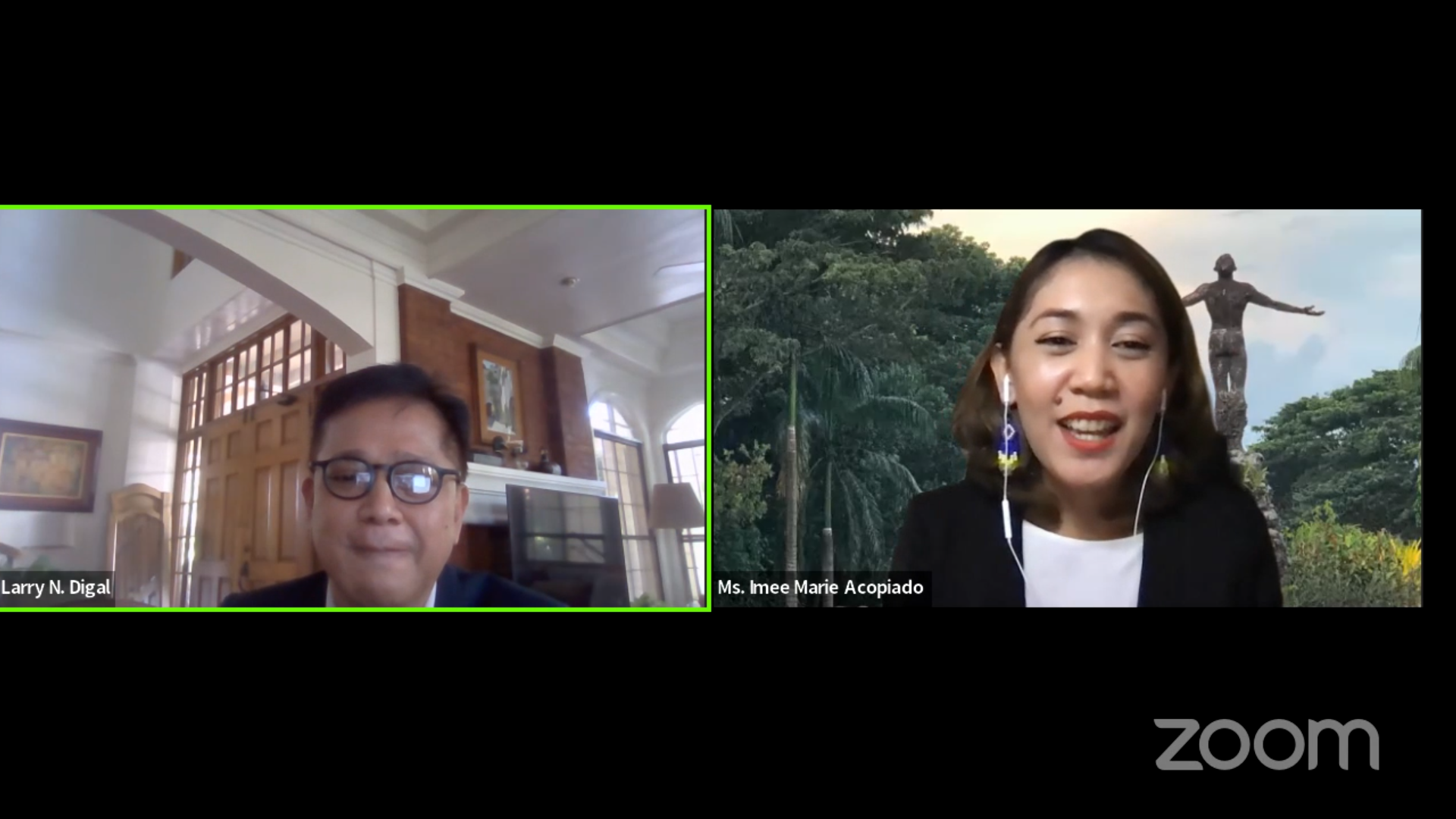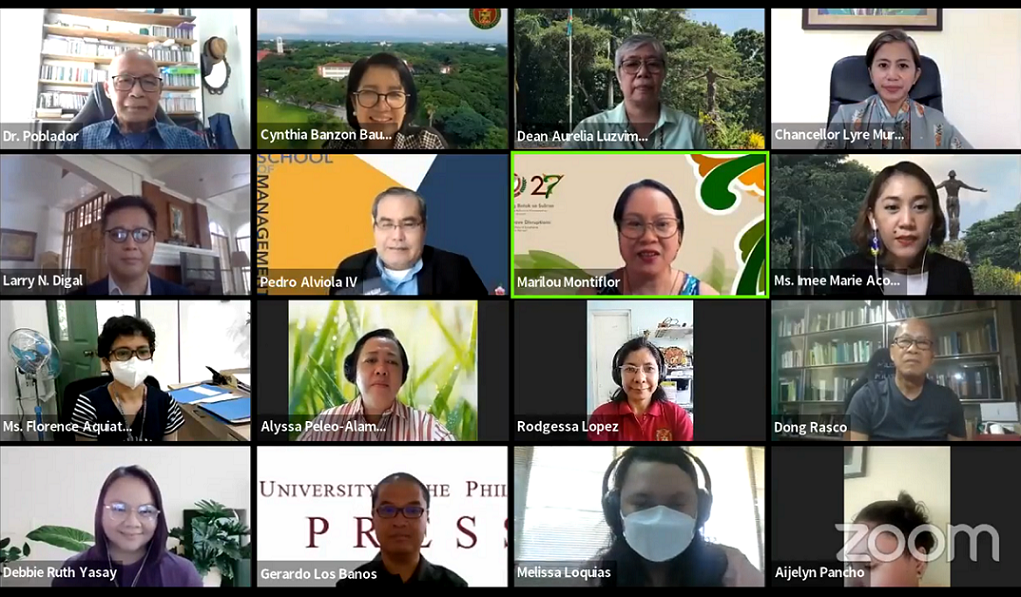Former UPMin dean Poblador has new book
 |
 |
| VPAA Bautista | Chancellor Murao |
 |
 |
| Dr. Poblador | Prof. Digal & Asst. Prof. Acopiado, emcee |
 |
 |
| The emcee & Prof. Alviola | School of Management team |
The University of the Philippines (UP) Mindanao’s former dean Dr. Niceto S. Poblador published a new book "Strategy in the New Age of Capitalism: Collaborative and Inclusive Approaches to Value Creation," which UP Mindanao welcomed with a book launch and book-signing ceremony on 05 May 2022.
"I welcome you to read the book and unpack its insights,” said Prof. Ma. Cynthia Bautista, UP vice president for academic affairs, in her welcome remarks at the UP Mindanao event. "Defend his insights or critique it in the philosophical sense, depending on your domain assumptions and theoretical perspectives," she said.
Former SOM dean and former UP Mindanao chancellor Prof. Larry Digal, in his book review, said “the concepts, ideas, and theories from various disciplines …support these core concepts of Dr. Poblador that it makes business sense for firms to share the value created with their stakeholders.”
Former SOM dean Prof. Pedro Alviola said, “the social responsibility of the firms is achieved by pursuing inclusive business practices and strategies that we need to be a contributor to economic wealth but in a manner that is consistent with the firm’s goal of earning profit.”
Dr. Poblador, in his talk, said “wealth is the incentive to create economic value but profit maximization is best achieved by consolidating and giving economic value to all contributors to the value-creation process. These contributors are consumers, workers, business partners or suppliers, and the community. Firms can co-align the economic interest of owners with other stakeholders. It can create value for customers through product development and improvement, generous pricing, and adequate customer care.”
Chancellor Lyre Murao said, "Dr. Poblador, please continue to share with us your wisdom and intellect, and assist our School of Management as one of its founders."
SOM Dean, Prof. Aurelia Luz Gomez, in her introduction to the former dean, said, "The legacy that he left behind is still with us."
The Social Weather Station, a non-government organization, likewise held its book launch on 20 May 2022. Prof. Mahar Mangahas, Social Weather Station director, in his "Social Climate" column in the Philippine Daily Inquirer on 28 May 2022 titled "Poblador's New Capitalism," wrote, "In this modern age, there are capitalists doing very well for themselves by being very good to others."
"Strategy in the New Age of Capitalism: Collaborative and Inclusive Approaches to Value Creation" is available from the University of the Philippines Press through .
